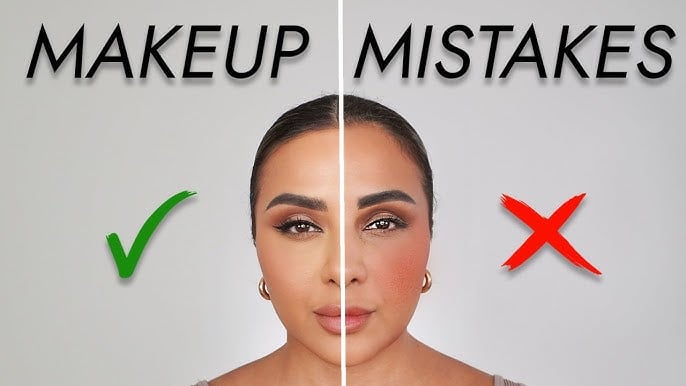Eye makeup, while enhancing beauty, poses significant risks to eye health if not used carefully. From seemingly harmless habits like sleeping with makeup on to using expired products, these practices can lead to a spectrum of eye problems, ranging from minor irritation to severe infections that could jeopardize vision. Understanding the connection between makeup habits and eye health is crucial for preventing these issues.
One common problem arises from the accumulation of mascara and eyeliner residue at the base of the eyelashes. This buildup clogs the meibomian glands, essential oil glands in the eyelids, resulting in blepharitis. This condition manifests as red, inflamed eyelids and persistent eye pain. Furthermore, using cheap or expired makeup products introduces another layer of risk. These products often contain potentially harmful ingredients like toxic preservatives, low-quality pigments, and even bacteria. The thin and porous skin around the eyes is highly susceptible to these substances, leading to contact dermatitis, allergic reactions, and irritation.
Chemical conjunctivitis, characterized by bloodshot eyes, is another frequent consequence of using harsh chemicals in eye makeup. These chemicals can penetrate the conjunctiva, the delicate membrane covering the eye’s surface. Similarly, loose particles from glittery eyeshadows or poor-quality eyelash adhesives can flake off and irritate the cornea, the transparent front part of the eye. This irritation can increase the risk of corneal infections, potentially leading to vision impairment.
Several everyday makeup habits contribute to eye health problems. Sleeping in eye makeup clogs pores, promotes chronic inflammation, and can lead to recurring styes. Applying eyeliner to the waterline introduces pigments and potentially harmful substances directly into the tear film, increasing the risk of infection. Using dirty or reused makeup brushes and sponges further elevates the risk of bacterial or fungal contamination. Additionally, oily and waterproof makeup products can leave residues on the surface of contact lenses, causing further complications. Applying makeup in a moving vehicle, such as a car, increases the chances of accidentally poking the eye with a brush or finger, potentially damaging the cornea.
Contact lens wearers are particularly vulnerable to makeup-related eye problems. Makeup particles can become trapped beneath the lens, causing abrasions, irritation, and, in severe cases, infectious keratitis, a potentially sight-threatening infection of the cornea. To minimize these risks, contact lens wearers should always insert their lenses before applying makeup and remove their makeup before removing their lenses. They should also avoid oil-based and waterproof makeup products, opting instead for products specifically labeled as safe for contact lens use and approved by ophthalmologists.
Ignoring eye irritation caused by makeup can have serious consequences. Untreated irritation can escalate into conditions like blepharitis, conjunctivitis, and dry eye syndrome. In the worst-case scenario, corneal ulcers or infections can develop, potentially requiring aggressive treatment, including surgery, and potentially leading to permanent vision loss. The longer these issues remain unaddressed, the greater the risk of irreversible damage.
To protect eye health while still enjoying makeup, it’s essential to adopt safe practices. Replacing eye makeup every three to six months prevents the buildup of bacteria and other harmful substances. Choosing tested and approved products, both dermatologically and ophthalmologically, minimizes the risk of irritation and allergic reactions. Thoroughly removing all eye makeup at night using gentle, eye-safe removers prevents pore clogging and inflammation. Washing hands before applying makeup and avoiding sharing products prevents the spread of bacteria. Regularly cleaning makeup brushes and applicators also helps to minimize bacterial contamination. Taking a few extra moments to check product labels, clean brushes, and discard expired makeup can significantly impact long-term eye health, preventing potential problems and preserving clear vision. By prioritizing eye health and following these simple precautions, individuals can continue to enjoy the benefits of makeup without compromising their vision.


